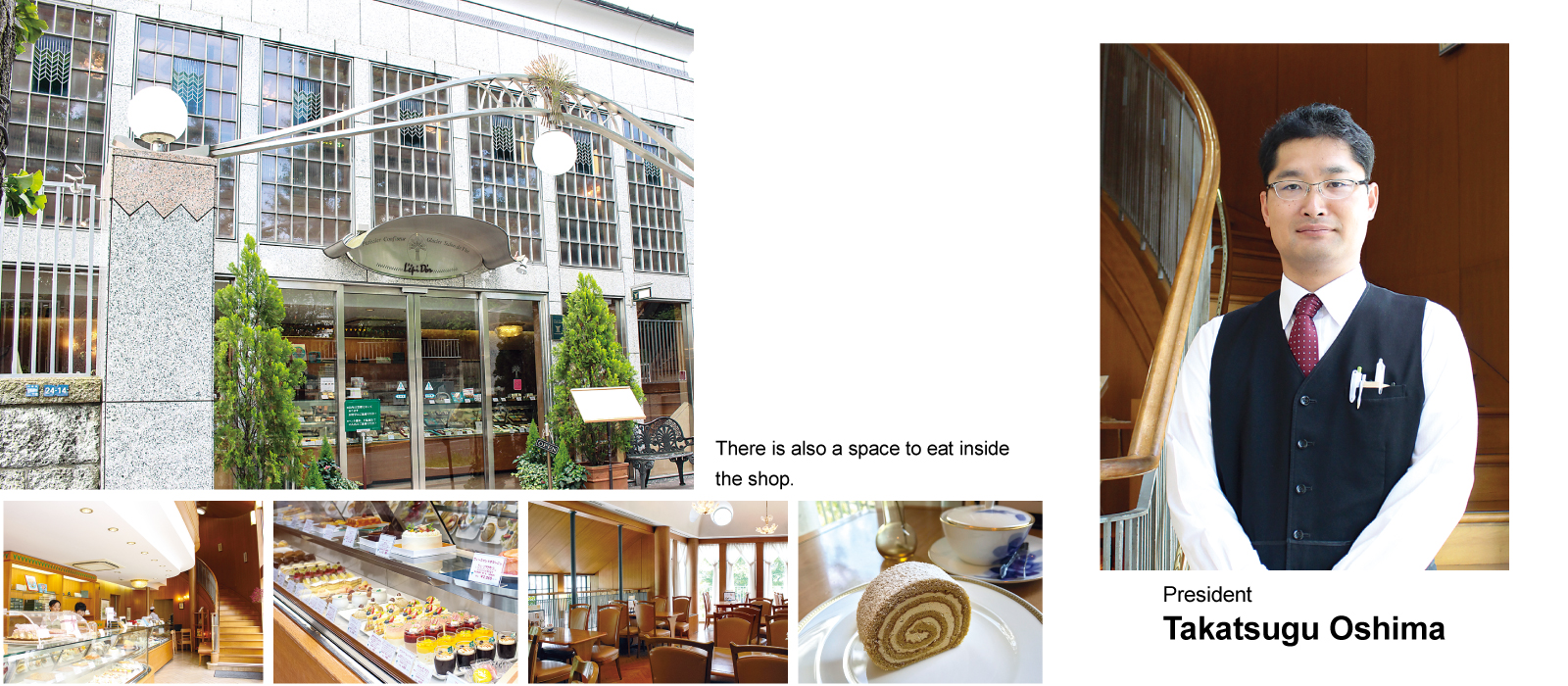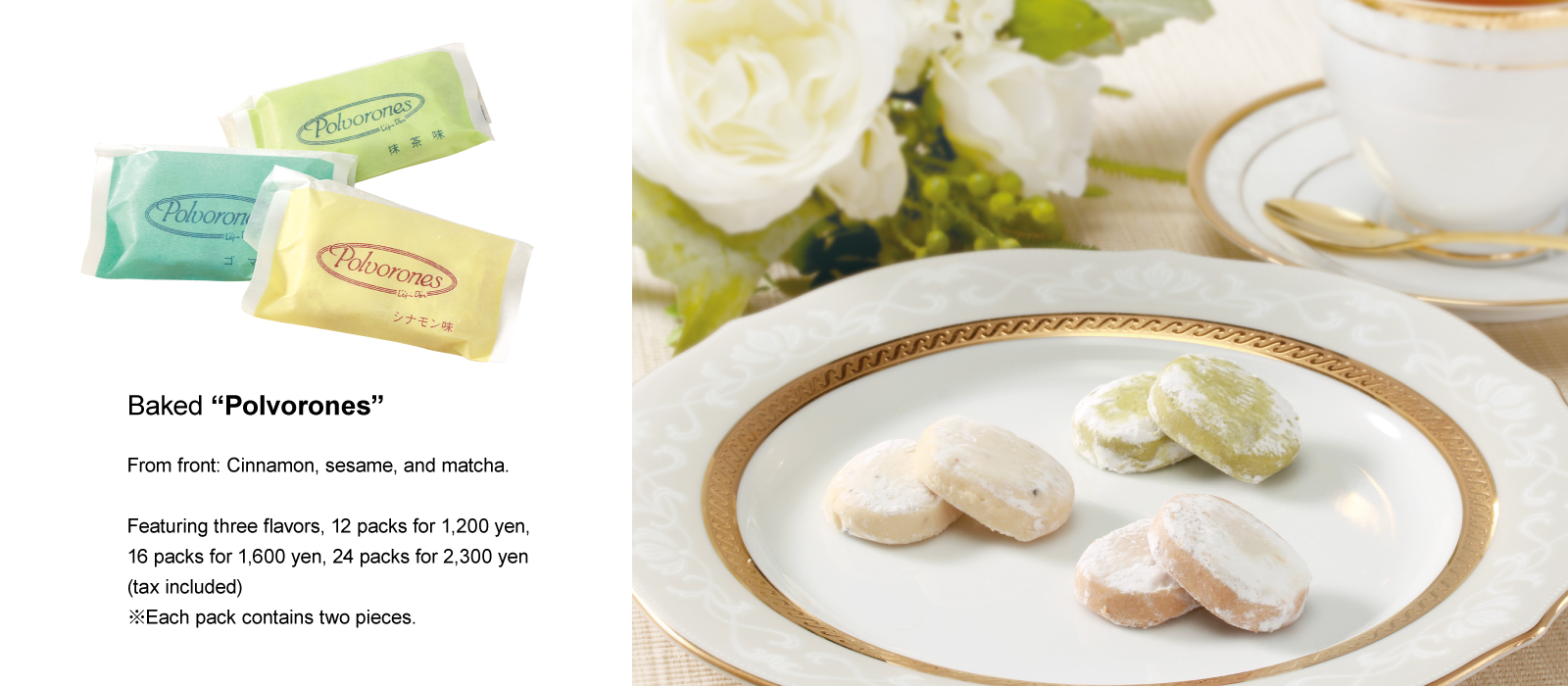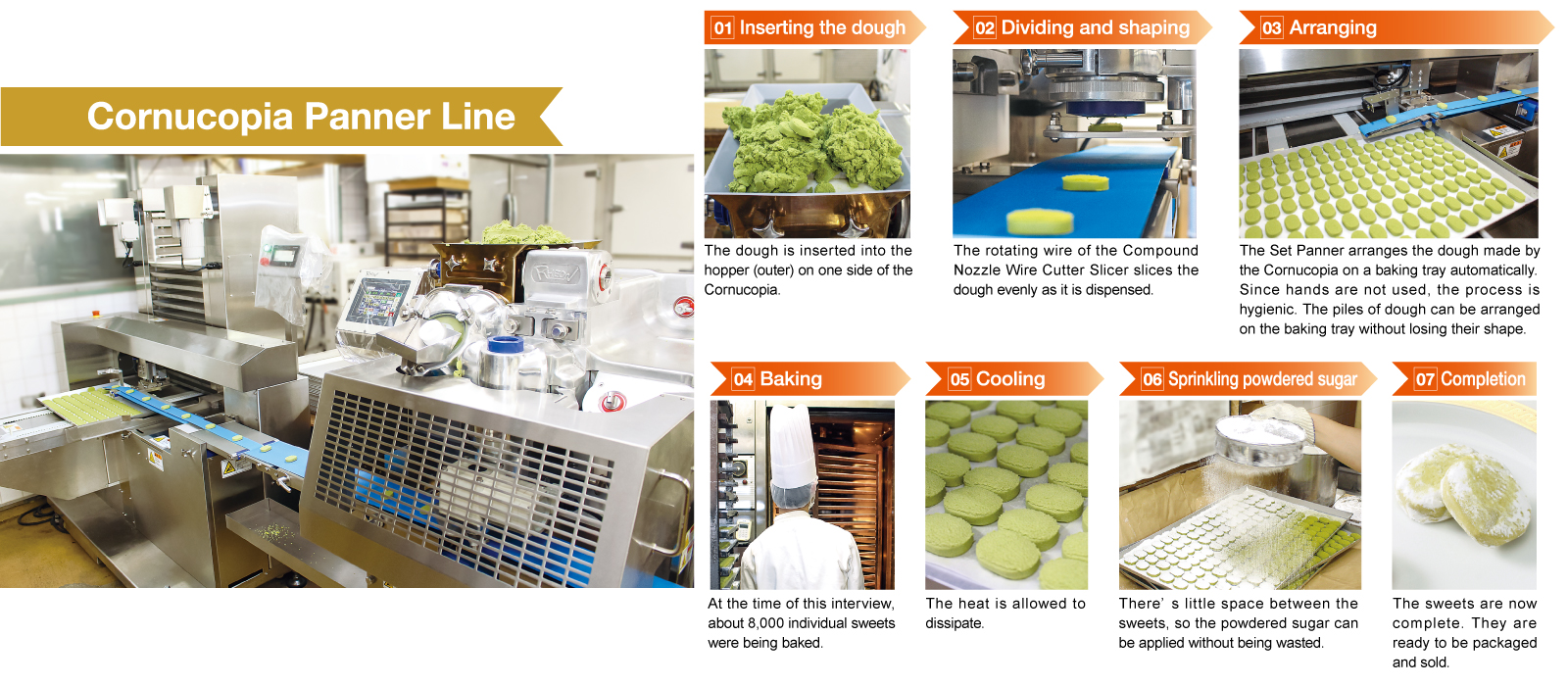The Cornucopia with Panner Line in Action
Streamlining Through Stable Production of Popular Products
L’épi D’or (Tokyo, Japan)

A Devotion to Flavor Rooted in an Opulent Neighborhood

Denenchofu in Tokyo’s Ota Ward has a reputation as one of Japan’s most prestigious residential areas. Pastry shop L’épi D’or was established here in 1973.
“L’épi D’or” means “golden ears of wheat” in French. This is why the shop is decorated with symbols of wheat.
For more than 40 years, L’épi D’or has attracted throngs of customers with its signature pastries, with an emphasis on fresh goods prepared with quality ingredients. Amid the elegant atmosphere of the store interior, about 80 different seasonal pastries are available. The ratio of chilled sweets to baked sweets is about 6:4.
The Polvorone sweets are the shop’s most popular product. They were developed through trial and error based on “Polvoron,” a traditional Spanish baked sweet, to suit Japanese tastes. This product has been a long-time seller ever since the shop opened and comes in three flavors: cinnamon, sesame, and matcha.
Sesame and matcha are ingredients often used in Japanese sweets. This superb confection encapsulates the shop’s philosophy of fusing traditional European flavors with Japanese tastes. The delicious taste and wonderful texture of these sweets make them popular with people of all ages, from children to the elderly.
“We have many regular customers, including ones from Spain, who are always buying our Polvorones. Many of them are repeat customers or buy the sweets as gifts because these can’t be obtained anywhere else. Polvorones comprise 90% of our online orders,” said Mr. Oshima, the president of the establishment. “Given the chronic labor shortage in Japan, converting the process for making the popular sweets into a machine-based one was essential,” he added.

Streamlining Through Mechanical Production
This product is made using a Set Panner connected to a Cornucopia CN580 (Japanese model) equipped with a Compound Nozzle Wire Cutter Slicer. The machine is operated two to three times a week and alternately produces three different flavors.
“We used to use a machine from another manufacturer for production, but its performance deteriorated, so we decided to replace it,” Mr. Oshima said. “We chose the Cornucopia because it has no trouble molding even extremely soft dough, and the after-sales service is reliable as well. To further streamline the process, we also brought in the Set Panner. It’s wonderful to be able to arrange everything in a sanitary manner. What’s more, this dough doesn’t expand when baked. So, there’s no issue even if there’s not much space between the sweets. We can make a large number of sweets in a single production run, and the powdered sugar that is applied after baking isn’t wasted. Compared to the previous machine, we were able to reduce our production staff to one-fourth of what it used to be. We are very satisfied.”
“That being said,” Mr. Oshima added, “while machines are convenient, if you use them without thinking, you won’t be able to truly appreciate their efficiency. There’s a concern that our staff wouldn’t learn anything that way. That’s why we make sure to educate them about the principles of confectionery making before they use the machines. This allows us to use the time gained from machine production for jobs that require other skills.”
This is how Mr. Oshima is striving to train the next generation of artisans.
His commitment to deliciousness and the refined skills of his artisans are what lend the prestigious L’épi D’or brand its power.


